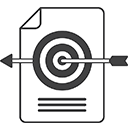Card Grading is a computer vision-based application developed by DivedeepAI that aims to establish the authenticity and value of collector’s cards, particularly Pokémon Cards. Utilizing deep learning algorithms and incorporating grading criteria established by BGS, the application provides independent and standardized assessments, giving collectors confidence in the quality and authenticity of their purchases.
Overiew
Card Grading is a cutting-edge computer vision-based application developed by DivedeepAI to address the challenges collectors face in the multi-billion dollar collector’s card market. The app’s primary objective is to establish the authenticity and value of collector’s cards, focusing on Pokémon Cards. By leveraging advanced deep learning techniques and incorporating industry-standard grading criteria, the application provides independent and standardized assessments of card conditions. Through a seamless user experience and integration with powerful tools such as Python, Django, sci-kit-learn, PyTorch, and OpenCV, collectors can gain confidence in the quality and authenticity of their purchases, make informed decisions, and protect themselves from counterfeit cards.

The Problem
Card Grading app tackles critical challenges in the collector’s card market, offering a comprehensive solution to enhance authenticity and value assessment. Some of the problems it addresses include

Challenge of Counterfeit Cards
The collector's card market faces a significant problem of counterfeit cards, which undermines the confidence of collectors. The Card Grading app addresses this issue by providing an independent and standardized assessment of card authenticity, utilizing advanced computer vision algorithms and incorporating authentication checks based on eight factors. This helps protect collectors from fraudulent transactions and ensures the market's integrity.

Lack of Objective Assessment
Before the development of the Card Grading app, collectors had limited access to objective assessments of card quality and condition. Subjective evaluations and varying standards made it difficult for collectors to determine the actual value of their cards. The app solves this problem by utilizing deep learning techniques and incorporating grading criteria established by BGS. It provides collectors with accurate and consistent assessments, enabling them to make informed purchasing decisions based on the card's condition.

Consumer Confidence and Market Sustainability
The absence of a reliable card grading service negatively impacted consumer confidence in the collector's card market. Buyers often hesitate to invest significant sums in cards due to concerns about authenticity and quality. The Card Grading app boosts consumer confidence by providing transparent and standardized grading reports, which increase trust and encourage collectors to participate in the market with greater assurance. This, in turn, contributes to the overall sustainability of the collector's card industry, fostering a thriving market for genuine cards.
How does it work
The Card Grading app employs advanced computer vision techniques, deep learning algorithms, and industry-standard grading criteria to provide a comprehensive solution for collector’s cards. Computer vision-based grading accurately assesses the condition of cards by analyzing factors like corners, edges, surface, grade, and centring. The app also incorporates authenticity checks using modules such as openCV, Pytesseract, and numpy to verify the genuineness of Pokémon cards based on various factors. With seamless integration of tools like Python, Django, sci-kit-learn, PyTorch, and OpenCV, the app offers collectors a reliable and standardized assessment of card quality, condition, and authenticity.

The Card Grading app utilizes computer vision techniques to assess the condition of collector’s cards. It leverages deep learning algorithms like the ResNet model to analyze card images and predict subgrade values. The app accurately determines the card’s condition by examining corners, edges, surface, grade, and center, providing a standardized grading assessment.

To ensure the authenticity of Pokémon cards, the app employs various modules like openCV, Pytesseract, and numpy. These modules perform checks based on eight factors established by industry standards. The app can distinguish genuine cards from counterfeits by analyzing card features, including holograms, printing quality, and fonts. If all the checks pass, the card is classified as genuine, while any failure results in an error card classification.

The Card Grading app leverages various tools, frameworks, and technologies to enhance its functionality. It is built using Python and Django, providing a robust and user-friendly interface. Additionally, it incorporates tools like sci-kit-learn, PyTorch, and OpenCV to improve the accuracy and efficiency of the grading process. These tools enable seamless integration of computer vision algorithms, deep learning models, and industry grading criteria, resulting in a comprehensive and effective card grading solution.
The Solution
The Card Grading app offers a range of solutions to address challenges in the collector’s card market. With its advanced authentication checks, it verifies the authenticity of Pokémon cards, protecting collectors from counterfeit transactions. The app provides objective grading assessments, eliminating subjectivity and ensuring consistent evaluations of card conditions. It acts as a fraud prevention tool, promoting a trustworthy marketplace. Moreover, collectors can make informed decisions based on comprehensive grading reports, enabling confident investments in the collector’s card industry.

Authenticity Verification
The app implements advanced authentication checks using computer vision and industry-established criteria to verify the genuineness of Pokémon cards. Analyzing factors such as holograms, printing quality, and fonts helps collectors identify counterfeit cards, ensuring confidence in the authenticity of their purchases.

Objective Grading
With its computer vision-based grading system, the app offers an objective assessment of card condition. By leveraging deep learning algorithms and industry grading criteria, it provides consistent and standardized grading reports, enabling collectors to evaluate the quality and value of their cards accurately.

Fraud Prevention
The app acts as a deterrent to fraud within the collector’s card market by identifying counterfeit cards and providing transparent grading reports. It helps protect collectors from purchasing counterfeit cards and ensures a fair and trustworthy marketplace for genuine cards, promoting integrity and consumer trust.

Informed Decision Making
The Card Grading app empowers collectors to make informed purchasing decisions. Providing comprehensive grading reports and accurate assessments of card condition equips collectors with the necessary information to evaluate the value and desirability of a card, enabling them to make educated decisions about their investments.
The Challenges
Counterfeit Card Detection
The Card Grading app addresses the challenge of counterfeit cards by implementing advanced authentication checks. By leveraging computer vision algorithms and industry-established criteria, it can accurately identify counterfeit Pokémon cards. This overcomes the challenge of distinguishing genuine cards from fakes, protecting collectors from fraudulent transactions and ensuring the integrity of the collector’s card market.
Subjective Grading Variability
Before the app’s introduction, subjective grading evaluations led to variability in card assessments. The Card Grading app overcomes this challenge by providing an objective grading system. By utilizing deep learning algorithms and industry grading criteria, it delivers consistent and standardized grading reports, eliminating subjectivity and providing collectors with reliable and consistent assessments of card conditions.

Applications

Online Marketplace Validation

Authentication Services

Educational Platforms
The app’s standardized grading criteria can be integrated into educational platforms, helping enthusiasts learn about card condition assessment and industry standards, fostering a well-informed collector community.

Investment Decisions
Investors can utilize the app’s objective grading to assess the potential value of cards. This data-driven approach aids in making informed investment decisions, contributing to a more knowledgeable and strategic market.

Market Analysis
By aggregating data from graded cards, the app could offer insights into market trends and demand for specific card conditions. This data can assist collectors, sellers, and investors in understanding market dynamics and making informed choices.